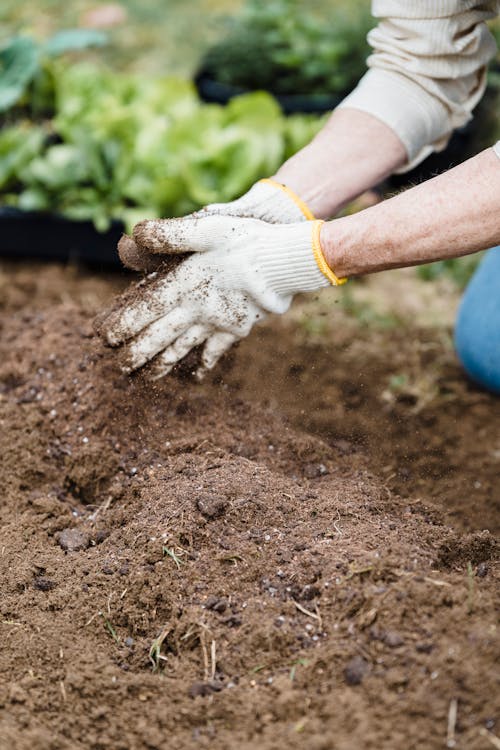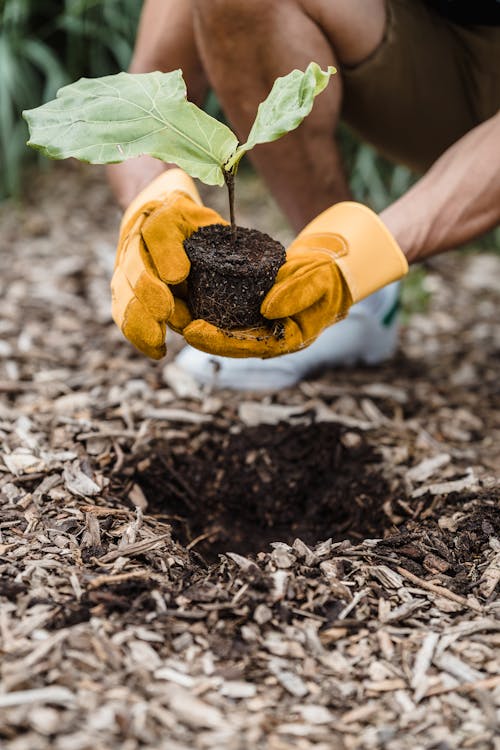If you’re serious about keeping your garden healthy and sustainable, then organic mulch and topsoil are essential tools in your gardening arsenal. They’re not just about making your yard look good—they actually play a critical role in improving soil health, conserving water, and protecting your plants. Let’s break down what organic mulch and topsoil are all about, and how they can help take your garden to the next level of sustainability.
Why Organic Mulch?
Organic mulch is essentially any material that was once living—think bark, leaves, grass clippings, straw, or wood chips—that you can spread over the soil surface in your garden or landscape. It’s called “organic” because it breaks down over time, enriching the soil as it decomposes. This process helps your plants thrive while reducing the need for synthetic fertilizers.
Here are some solid reasons why organic mulch is a game-changer for your garden:
1. Improves Soil Health
Organic mulch gradually decomposes, adding essential nutrients back into the soil. This boosts the organic matter content in your soil, which is vital for healthy plant growth. Over time, you’ll notice richer, more fertile soil—perfect for those looking to keep their garden naturally robust without relying on chemicals.
2. Moisture Retention
One of the biggest challenges gardeners face is keeping the soil consistently moist. Organic mulch acts like a blanket, helping the soil retain moisture. This is especially beneficial during hot summers or in dry climates where water conservation is key. With mulch in place, you’ll need to water less often, which is a win for both your garden and the planet.
3. Weed Control
Nobody likes spending hours pulling weeds. A good layer of mulch helps smother weed growth by blocking sunlight, preventing those pesky plants from taking over your garden. By reducing weed competition, your plants get more of the nutrients, water, and space they need to flourish.
4. Temperature Regulation
Mulch acts as an insulator, keeping your soil cool in the summer and warm in the winter. This is especially helpful for delicate plants with shallow roots, as it protects them from temperature extremes and helps them stay strong year-round.
The Role of Topsoil

Topsoil is the uppermost layer of soil, and it’s where most of your plant’s nutrients come from. When you add organic topsoil to your garden, you’re essentially giving your plants a nutrient-packed foundation. Quality topsoil is rich in organic matter, and it’s the layer where your plants’ roots thrive. If your garden soil isn’t as rich as you’d like, adding topsoil can make all the difference.
1. Boosting Nutrient Levels
Good topsoil is loaded with nutrients that are essential for healthy plant growth. By adding topsoil to your garden beds or lawn, you’re replenishing any lost nutrients and giving your plants the best chance to grow strong and healthy. It’s an easy and natural way to ensure your garden stays vibrant.
2. Improving Soil Structure
If your existing soil is too sandy, clay-heavy, or compacted, mixing in topsoil can help improve its structure. Topsoil enhances drainage while retaining moisture, giving your plants a more balanced environment to grow in. Plus, it makes it easier for roots to penetrate the ground, which means healthier, more resilient plants.
3. Erosion Control
If you’re dealing with slopes or areas of your yard that tend to wash away during heavy rains, adding topsoil can help prevent erosion. It creates a more stable base, reducing the amount of soil that gets carried off by water.
Sustainable Practices: Mulch and Topsoil Delivery
One of the key aspects of maintaining a sustainable garden is reducing your carbon footprint. Luckily, many companies now offer mulch and topsoil delivery, cutting down on the need for multiple trips to the store. Some providers even specialize in organic, locally-sourced mulch and topsoil, which means you can get the materials you need while supporting eco-friendly practices.
When choosing a delivery service, look for one that focuses on sustainability. Some companies recycle yard waste to produce their mulch, while others source topsoil from local areas that support biodiversity and healthy ecosystems. This not only helps your garden but also contributes to a larger effort of conserving natural resources.
Going Beyond Mulch: Land Clearing for a Sustainable Landscape
If you’re starting a new garden or re-landscaping a larger area, land clearing may be necessary. While it can seem like a drastic step, sustainable land clearing practices focus on removing unwanted plants and debris without harming the surrounding ecosystem. Using eco-friendly methods ensures that you’re not disturbing local wildlife or damaging the soil structure.
Whether you’re expanding your garden or preparing for a fresh planting season, partnering with professionals who prioritize sustainability is key. They’ll help you clear the land while keeping the environment intact—setting the stage for a lush, healthy, and sustainable garden.
The Bottom Line
Organic mulch and topsoil are not just garden add-ons—they’re essential for anyone looking to cultivate a thriving, sustainable garden. By improving soil health, conserving water, controlling weeds, and regulating temperature, these natural materials make it easier for your plants to thrive. With delivery options that focus on eco-friendly practices, you can get the supplies you need while staying true to your sustainability goals.
So, whether you’re building up your flower beds, planting a vegetable garden, or just looking to improve your yard’s overall health, organic mulch and topsoil are your best bets for a greener, healthier, and more sustainable space.
